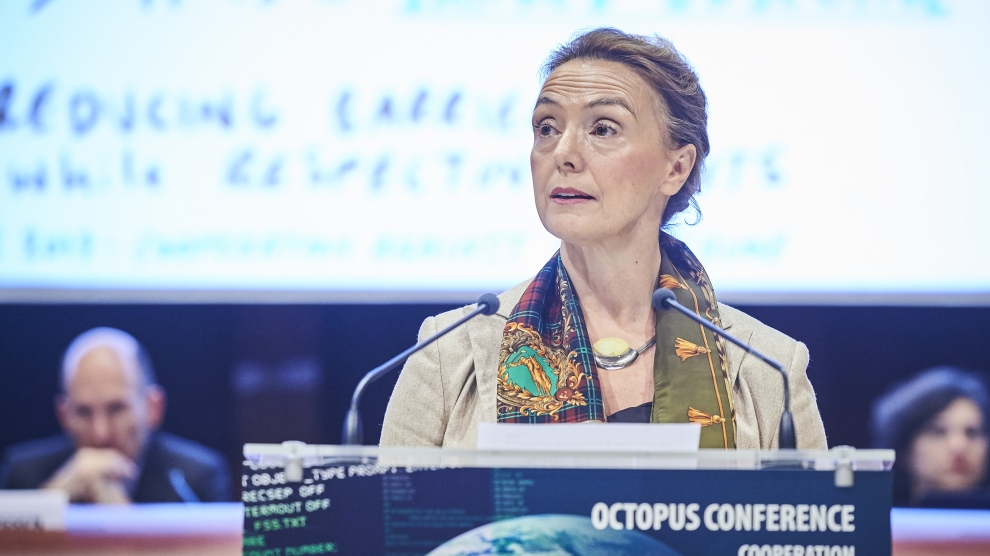Council of Europe (COE) Secretary General Marija Pejčinović Burić (pictured above) has reiterated the importance of the Budapest Convention, the only legally-binding international treaty which is used on a daily basis by criminal justice authorities in national and international cybercrime investigations.
“Cybercrime is causing increasingly serious damage to our societies, and it is imperative that we fight it,” said Pejčinović Burić, speaking at a conference in Strasbourg dedicated to combating cybercrime. “Computer-related crimes affect businesses but also take the form of attacks on democracy and elections, the sharing of millions of child pornography images and the theft of billions of personal data”.
“That is why, at the Council of Europe, we want to promote the criminal justice response to the challenges of cybercrime and electronic evidence,” she said.
The COE’s secretary general also highlighted the need for technical assistance to strengthen legislation; training for investigators, prosecutors and judges; and co-operation between the public and private sectors and at international level.
Over the last 12 months, 240 capacity-building activities have been supported by the Council of Europe Cybercrime Programme Office in Bucharest, involving more than 120 countries, “all of which have met the prerequisite of committing to national legislation in line with Budapest Convention standards”.
Pejčinović Burić also referred to the dynamism of the convention, citing a recently adopted guidance note on electoral interference and the preparation of a new protocol. This new text, which is to be finalised by the end of 2020, will provide innovative solutions to secure electronic evidence more efficiently, in line with data protection and rule of law safeguards.
—
Photo: Council of Europe






Add Comment